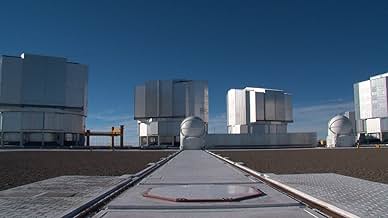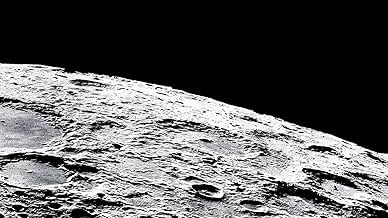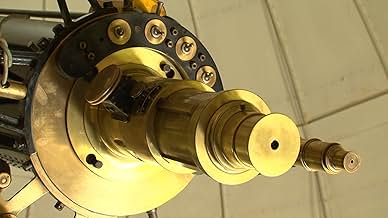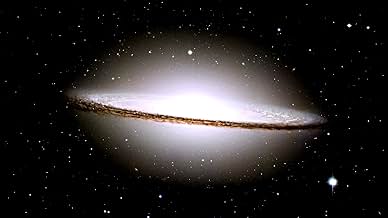Segui queste due ricerche condotte nel deserto cileno di Atacama: una da astronomi in cerca di risposte sulla storia del cosmo e l'altra da donne che cercano i resti di persone care uccise d... Leggi tuttoSegui queste due ricerche condotte nel deserto cileno di Atacama: una da astronomi in cerca di risposte sulla storia del cosmo e l'altra da donne che cercano i resti di persone care uccise dal regime di Pinochet.Segui queste due ricerche condotte nel deserto cileno di Atacama: una da astronomi in cerca di risposte sulla storia del cosmo e l'altra da donne che cercano i resti di persone care uccise dal regime di Pinochet.
- Premi
- 13 vittorie e 20 candidature totali
Recensioni in evidenza
Until I watched it, I honestly didn't know that the best place in the whole world to search for light from the universe, also possesses the remaining of a mass tragedy that Chile went through. The movie brought these two things coherently, and it has this incredible comparison between a two distinct opposites, the beauty of the universe, and the ugliness of ourselves.
Somewhere in the movie one has to ask himself many questions. In a universe this vast with endless dots spreading all over its unbelievably ample space, with each dot as a whole star, smaller, similar or larger than the Sun; why do teeny tiny humans on Earth act so blindly to each others?! What is the purpose of knowing what's up there a million light years away while we still can't understand or deal with what's just beneath our noses? How come we were able to develop such powerful telescopes to look deep into outer space but not being able to develop a clearer insight to our own kind? And, how absurd it is to seek political power at any cost.
This beautiful movie provokes such questions and more, using the hardest way imaginable. Beautiful, but sad documentary.
As a result, the world's astronomers flock to the Atacama to gaze out into the universe and to search for evidence and artifacts from the beginning of time. These "archaeologists of time" decompose the stars into their constituent elements one of which is calcium.
Elsewhere in the desert, other "archaeologists" search among the pebbles and dust for evidence of calcium. They are looking for bones. Or at least fragments of bones. They are the mothers, brothers, sisters and wives of Chile's disappeared. During Pinochet's military dictatorship many thousands of Chileans were abducted and killed and their bodies disposed of in the Atacama. Forty years later their relatives still search the desert for any sign or bone fragment that might give a clue to where their loved ones lie.
Patricio Guzman juxtaposes these two sets of archaeologists in his beautiful documentary, "Nostalgia for the Light". In many ways they both seek answers to the same question. They try to find the true meaning of life.
There are some very moving scenes in this movie. In one, a lady in her seventies sits in the desert, in tears, and proclaims that she will never stop looking for the remains of her loved one. In the other, a young Chilean astronomer, whose parents were killed by the government when she was only one, clutches her new born baby (this scene is just wonderful). She displays the transcendent wisdom of someone of far greater years as she explains how she has, through her work and observations, come to terms with their murder.
An unmissable movie.
http://sofia-notes.blogspot.com/2011/09/nostalgia-for-light.html
The brutal results of Pinochet's military dictatorship are meshed with the search for the origins of the universe. Both subjects deal with the past, as we only have past and future; there is no present as Augustine said many years ago.
So, astronomers are really archaeologists. They study space to discover the past. Writer/director Patricio Guzmán combines this "archaeology" with the archaeologists who search the desert for the bodies buried by Pinochet.
A fascinating story.
Yet both ignore the significance of an "insignificant" massacre that is conveniently concealed by Chilean society. The Pinochet regime. A military dictatorship that detained and slaughtered thousands of Chileans, obscuring the remaining evidence by moulding mass graves in the midst of the wilderness. A particulate in history that the modern Chilean populous have audaciously decided to ignore. However, a selection of zealous women scout the Atacama landscape foraging for fragments of shattered bones, in the glimmering hope that the remnants of their beloved will be uncovered. The human tenacity tested. A near impossible task for peace and solace. Scouring the desertification of the past, to seek comfort for the future. Much like astronomers and archeologists, these women are on the same emphatic journey for answers. All delving into the past to establish a greater understanding.
Guzmán's cinematic diary, whilst tackling the sociopolitical ignorance of the Pinochet dictatorship, existentially challenges the national application of insufficient accountability through the metaphoric connectivity between the regime's outlook and astronomy. Two initially diverse subjects somehow manufacturing a multitude of succinct links that convey the ferocious human spirit. Transitioning between various professions, utilising articulate interviews and profound commentary, to devise various associations that elude to a thematic symbiotic relationship. The female individuals foraging the desert for splinters of calcium, in the form of bone fragments, whilst astronomers scan calcium levels within the remnants of stars. Guzmán visually comparing the two through the usage of still slides. Commencing with close-ups of asteroids and moons before metamorphosing the images to bone fragments, assimilating an indistinguishable identical form. Cinematic examples such as the aforementioned further enhance the interchangeable thematic quest, searching for fractured past life in the present.
Various connections may initially seem tenuous, especially when focusing on the survivors from the Chacabuco concentration camp, but that's where Guzmán's enlightening commentary comes into fruition. Describing Lawner's time at Chacabuco, whom was referred to as an "architect" for his acute ability in memorising the prison's infrastructure by systematically counting how many steps dictated each wall, may originally seem insubstantial. Until Guzmán concludes his interview with a scholarly comment regarding Lawner's wife. The couple are a metaphor for Chile. He remembers the past, she, whom is suffering with Alzheimer's disease, is forgetting.
Circling back to the primary purpose of Nostalgia For The Light. We should never forget, but instead remember. To educate ourselves into uncovering our own origins. Bolstered by provocative imagery, with much applause aimed towards Dijon's exquisite cinematography (except the commonly used stardust filter that cheapened the cinematic quality of the documentary), and poetic narrative flow, Guzmán relentlessly tackles the parallels time offers to humanity. Physically transporting us on a self-discovering journey across the cosmos and the sprawling ground beneath our ignorant feet. We expend substantial amounts of time surveying remnants of remnants in a bid to discover answers, yet those who do not are unable to understand their past. There is no beginning or future to them. Only existence as a shell. "Compared to the immensity of the cosmos, the problems of the Chilean people might seem insignificant. But if we laid them out on a table, they would be as vast as a galaxy".
Lo sapevi?
- QuizIncluded among the "1001 Movies You Must See Before You Die", edited by Steven Schneider.
- Citazioni
[last lines]
[in Spanish, using English subtitles]
Gaspar Galaz - Astronomer: [voiceover] I am convinced that memory has a gravitational force. It is constantly attracting us. Those who have a memory are able to live in the fragile present moment. Those who have none don't live anywhere. Each night, slowly, impassively, the centre of the galaxy passes over Santiago.
- ConnessioniEdited into P.O.V.: Nostalgia for the Light (2012)
I più visti
- How long is Nostalgia for the Light?Powered by Alexa
Dettagli
- Data di uscita
- Paesi di origine
- Sito ufficiale
- Lingue
- Celebre anche come
- Nostalgia for the Light
- Luoghi delle riprese
- Aziende produttrici
- Vedi altri crediti dell’azienda su IMDbPro
Botteghino
- Lordo Stati Uniti e Canada
- 163.962 USD
- Fine settimana di apertura Stati Uniti e Canada
- 5664 USD
- 16 gen 2011
- Lordo in tutto il mondo
- 410.903 USD
- Tempo di esecuzione
- 1h 30min(90 min)
- Colore
- Mix di suoni
- Proporzioni
- 1.85 : 1



















